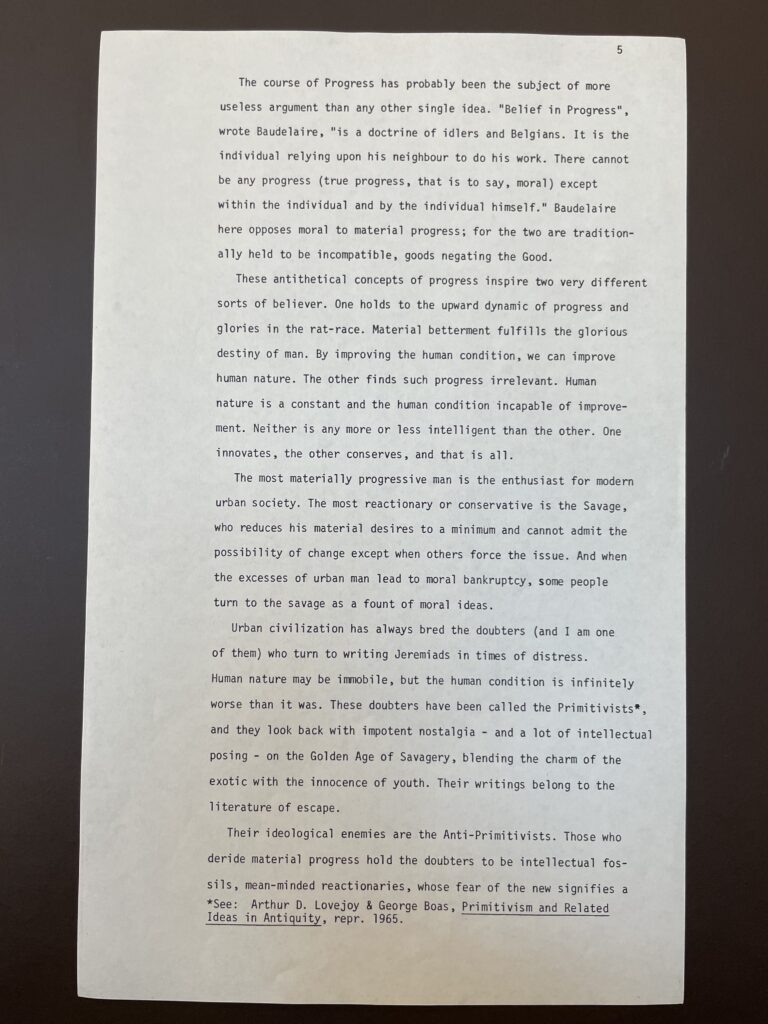The Nomadic Alternative – Page 5
The Nomadic Alternative
Page 5
The course of Progress has probably been the subject of more useless argument than any other single idea. “Belief in Progress”, wrote Baudelaire, “is a doctrine of idlers and Belgians. It is the individual relying upon his neighbour to do his work. There cannot be any progress (true progress, that is to say, moral) except within the individual and by the individual himself.” Baudelaire here opposes moral to material progress; for the two are traditionally held to be incompatible, goods negating the Good.
These antithetical concepts of progress inspire two very different sorts of believer. One holds to the upward dynamic of progress and glories in the rat-race. Material betterment fulfills the glorious destiny of man. By improving the human condition, we can improve human nature. The other finds such progress irrelevant. Human nature is a constant and the human condition incapable of improvement. Neither is any more or less intelligent than the other. One innovates, the other conserves, and that is all.
The most materially progressive man is the enthusiast for modern urban society. The most reactionary or conservative is the Savage, who reduces his material desires to a minimum and cannot admit the possibility of change except when others force the issue. And when the excesses of urban man lead to moral bankruptcy, some people turn to the savage as a fount of moral ideas.
Urban civilization has always bred the doubters (and I am one of them) who turn to writing Jeremiads in times of distress. Human nature may be immobile, but the human condition is infinitely worse than it was. These doubters have been called the Primitivists*, and they look back with impotent nostalgia – and a lot of intellectual posing – on the Golden Age of Savagery, blending the charm of the exotic with the innocence of youth. Their writings belong to the literature of escape.
Their ideological enemies are the Anti-Primitivists. Those who deride material progress hold the doubters to be intellectual fossils, mean-minded reactionaries, whose fear of the new signifies a
*See: Arthur D. Lovejoy & George Boas, Primitivism and Related Ideas in Antiquity, repr. 1965.
Editor's Note: This text has been transcribed automatically and likely has errors. if you would like to contribute by submitting a corrected transcription.
